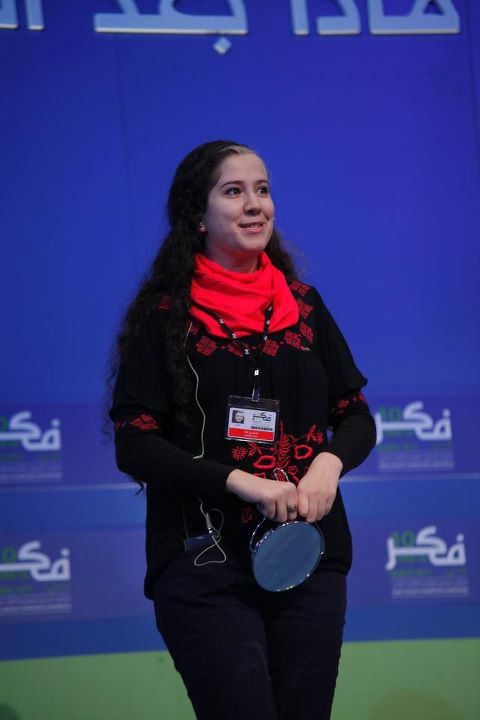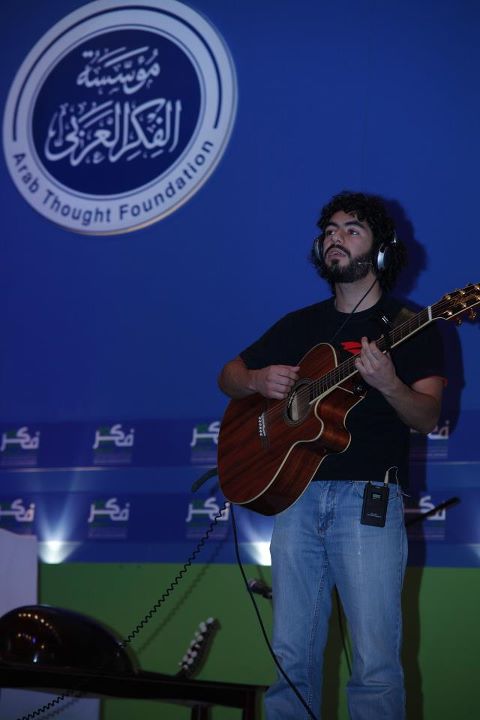FIKR10’s inspiring participants
Portraits of young Arab leaders
“Arab Spring: What’s Next?”, the FIKR10 conference, took place in Dubai from December 5 to the 7, dealing with the aftermath of this year’s events in the region.
Organised by the Arab Thought Foundation, a non-governmental institution, this annual event brings together the intellectual and business communities of the region. It was founded in 2000 by Khalid Al-Faisal, governor of the region of Mecca, and its members are the influential leaders of the Arab world. Each conference takes place in a different Arab city, FIKR9 happened in Beirut. FIKR10 dealt with different topics like the economy, politics, culture, social issues, women and the youth.
Even though most of the speakers and participants were the traditional, older, political ones, members of the youth marked their presence with creativity, initiatives and a will of making sure that their voices were heard. There was a mix of everything from all the corners of the Arab world: journalists with Egyptian Mohammed El Dahshan or Palestinian Sabreen Taha; social entrepreneurs like Kuwaiti Mohsen AlAjmi, creator of the application nasy.org (My People); Tunisian lawyer Nabil Labassi and public figures like Sultan AlQassemi from the UAE.
From one panel to another, young speakers were everywhere. The Arab Thought Foundation also chose Youth Ambassadors, who represent the organisation for a year in their respective countries. They all brought a real breath of fresh air to the audience, stirring the usual torpor associated with these conferences, or even pushing a moderator from his entrenched position. Here are a few of the participants:
Maher Kaddoura, a Jordanian social entrepreneur said, while presenting the introductory session of the conference, that “70 percent of the population in the Arab world is under 30.” It is then only normal to have this majority represented in the discussions. Some inspired, impressed and also attracted the public. The session “FIKR wa AFKAR” (Thought and Ideas) gathered eight young people, from around the Arab world, to share their experiences.
Mohammed S. Al-Lai, founder and CEO of Al-Amal, the first Microfinance Bank in Yemen shared his experience. There are 25 million Yemenis, 76 percent of which are aged less than 30. 45 percent of the population is unemployed. He was able to offer 18,000 jobs back home with his bank. His work has been about encouraging the younger generation, and is an example to follow: he is 37, but his 200 employees are younger than him.
Bassam Jalgha, a Lebanese engineer and entrepreneur gave a creative presentation while performing with his oud. He decried the situation of consumerism in the Arab world: we have always been followers and consumers, he said, instead of producers, so “now is the time to believe in ourselves and to prove it to the rest of the world.” The Arab Spring proved that anything was possible, not just regime change. Bassam Jalgha invented a device that automatically tunes music instruments, and showed it by arranging his oud and playing it. He concluded with “passion is the most important thing that makes people follow you.”

Sabreen Taha, journalist, editor and TV reporter from Ramallah, was up next. She opened a discussion with her mirror, as if she were having an identity crisis. Touching and truthful, she shouted for her rights and to have her voice heard. Palestinian culture and history was taken from the people’s hands, she said, becoming the culture of the oppressors. She also insisted on the importance of terminology: checkpoints are barrages and not crossings. She had the word of the end: “Every day has been a spring in Palestine, ever since 1948. Despite that, the Arab Spring is a wakening call. We have to keep on dreaming about it so that we don’t forget about it.”

A very pleasant surprise was Alaa Wardi, an Iranian artist living in Riyadh. He played one of his videos while singing and playing at the guitar. The video perfectly synchronised with what he did on stage; his performance stunned the whole audience, who was speechless and amazed.
Mohamed El Dahshan, Egyptian policy consultant and writer, took part in the panel discussion on the economic challenges. He argued that all the Arab world was concerned by the economic problems. Unlike common knowledge, the financial setbacks are not limited to the countries in which there were or still are revolutionary movements.
Sultan AlQassemi, a well-known commentator on Arab affairs, quoted the pioneers of Arab blogging like Ahmed Al Omran, Fouad Alfarhan, Eman Al Nafjan, Hadeel Al Hodaif and the imprisoned Alaa Abd El Fattah. In the session “Women, Youth and Cyberspace”, he discussed the power of Twitter, which could be a trusted source of news. Indeed, unlike traditional media, there are ways to know whether the news is true or not, depending on the user posting it. For instance, tweeps with only one follower wouldn’t be trusted. The future of fact-checking relies on social media.
Many of the speakers, and especially the younger ones, share the belief that the Arab Spring brought hope to this part of the world. FIKR10 was just a small step forward officially acknowledging the youth’s indisputable influence. More should be done to give them an even bigger role, representative of what they have accomplished this past year.
4 thoughts on “FIKR10’s inspiring participants”
Leave a Reply
You must be logged in to post a comment.







اعجبنى